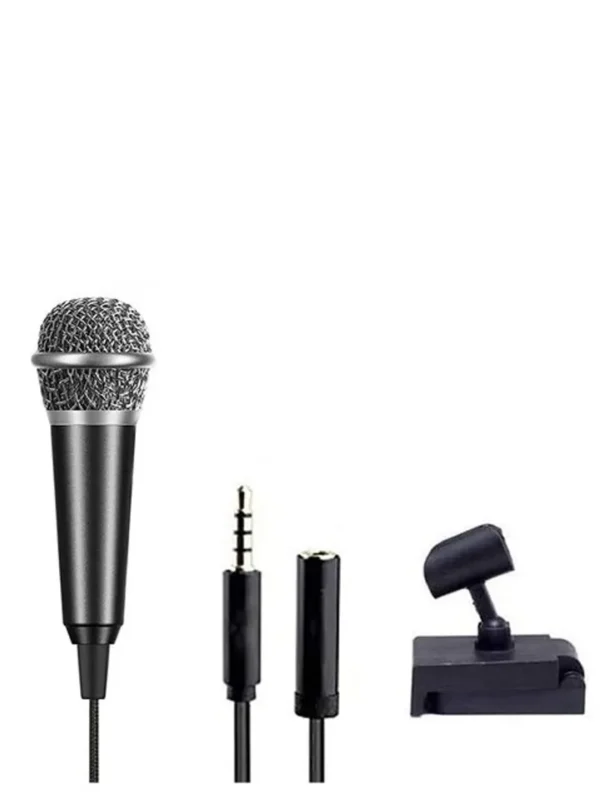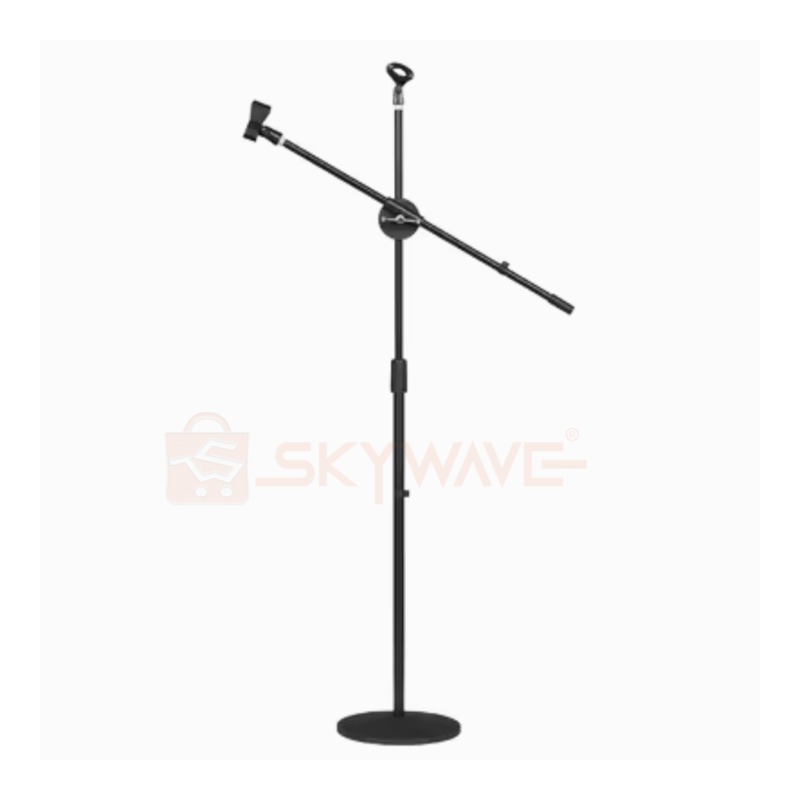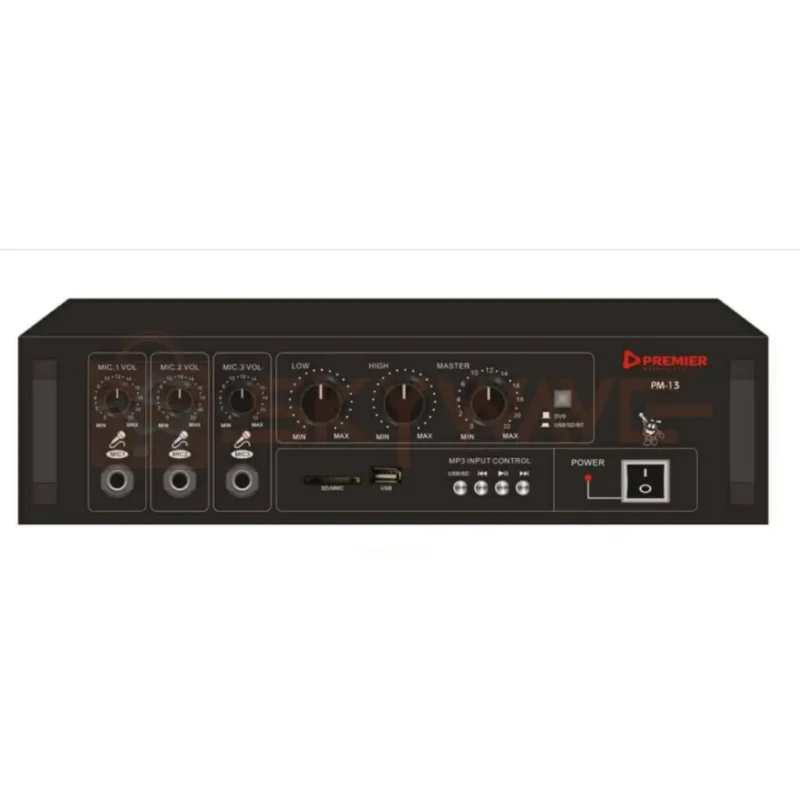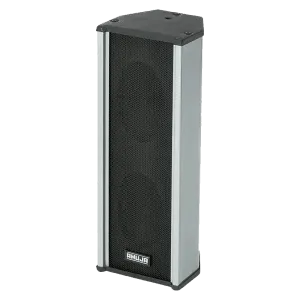Public Address Systems for Mosques: Choosing the Best

Introduction
In mosques, the role of a public address (PA) system is crucial to creating a serene, spiritually immersive atmosphere. Unlike churches, where PA systems often serve multiple purposes, including broadcasting music and worship songs, mosque PA systems are specifically designed to fulfill unique requirements. The primary objectives of a mosque’s PA system are to broadcast the Adhan (call to prayer), ensure sermon and prayer clarity, manage large gatherings, and enhance the acoustics of prayer halls and outdoor spaces. Due to these specific needs, mosque PA systems often differ from other types of religious sound systems, although they all fall under the same category of public address systems.
In this blog post, we will explore the components that make up a mosque PA system, their functions, and the factors to consider when choosing the best system for your mosque. Whether you’re setting up a new sound system or upgrading an existing one, this guide will help you make informed decisions to enhance the audio experience for your congregation.
The Importance of PA Systems in Mosques
The central purpose of any PA system in a mosque is to ensure clear communication between the Imam and the worshippers. With the architectural complexities often found in mosques, including domes, arches, and large prayer halls, a properly configured PA system can make all the difference in providing an optimal auditory experience. Let’s explore the specific roles of PA systems in mosques:
- Broadcasting the Adhan (Call to Prayer): One of the primary purposes of the PA system is to broadcast the Adhan. The Adhan marks the beginning of each prayer time, inviting Muslims to the mosque or reminding them of their prayer obligations. It is important that the Adhan is heard clearly and distinctly both inside and outside the mosque.
- Ensuring Sermon and Prayer Clarity: During Friday sermons (Khutbah) and daily prayers, the PA system ensures that every word spoken by the Imam is clearly heard by all worshippers, regardless of where they are seated in the mosque. This is particularly important during the Jumu’ah prayer when the sermon plays a central role in the worship service.
- Managing Large Gatherings: Mosques often accommodate hundreds or even thousands of worshippers, particularly during Jumu’ah prayers, Ramadan, and Eid celebrations. A reliable PA system ensures that everyone, whether in the main prayer hall or overflow areas, can hear the sermon and prayers clearly.
- Enhancing Acoustics: Mosques often have intricate architecture that can impact sound distribution. Domes, high ceilings, and large open spaces can cause sound to reverberate, making it difficult for worshippers to hear. A well-designed PA system can overcome these challenges by delivering clear, evenly distributed sound throughout the mosque.
Components of a Mosque PA system
A mosque’s PA system is composed of several key components, each serving a unique role in ensuring clear audio for the congregation. Here are the most important elements of a mosque PA system:
1. Microphones

Microphones are the core of the PA system, responsible for capturing the Imam’s voice and converting it into an electrical signal for amplification. Various types of microphones are used in mosque PA systems, each offering specific advantages depending on the context:
- Wired Microphones: These are the most common type of microphone used in mosques. They provide high-quality audio and are usually placed at the podium where the Imam leads the prayers or delivers sermons. Their wired connection ensures reliability, as there is no risk of interference or signal loss.
- Wireless Microphones: Wireless microphones offer flexibility, allowing the Imam to move around freely during prayers or sermons. These are particularly useful during special occasions such as Eid prayers or Ramadan gatherings, where the Imam may need to address different parts of the mosque or outdoor areas. However, wireless microphones require careful management to avoid signal interference, and they rely on batteries, which must be regularly charged or replaced.
- Lapel Microphones (Lavalier): Lapel microphones are small, discreet, and typically clipped to the Imam’s clothing. These microphones offer hands-free operation, which can be especially helpful during prayers or when the Imam needs to use both hands. However, like wireless microphones, lapel microphones are battery-powered and may require monitoring for consistent audio quality.
Each type of microphone has its benefits, and in many cases, mosques use a combination of these to ensure maximum flexibility and clarity during different types of events.
2. Microphone Stand

A microphone stand is an essential accessory that ensures the microphone is held at the proper height and angle for the speaker. Adjustable stands are preferable as they can be tailored to different speaker heights or podium settings. Sturdy stands are necessary to prevent unwanted movement or vibrations, which could affect audio quality.
3. Amplifiers and Mixers

Amplifiers and mixers are critical components in ensuring the sound captured by the microphones is delivered clearly through the speakers.
- Amplifiers: The amplifier’s role is to boost the signal from the microphone so that it can power the speakers. The power of the amplifier must be sufficient to drive the speakers without causing distortion or clipping. For larger mosques, more powerful amplifiers may be required to ensure that sound reaches all areas of the building, including outdoor spaces.
- Mixers: Mixers allow multiple audio sources, such as different microphones and external audio devices, to be combined and balanced. A good mixer ensures that the sound is evenly distributed and that no one source overpowers the others. Mixers also offer the flexibility to adjust volume levels and equalization for each audio input, which can be particularly helpful in managing sound clarity in different parts of the mosque.
4. Speakers

Speakers are responsible for distributing sound throughout the mosque and surrounding areas. The type and placement of speakers can significantly impact the quality and clarity of the audio. The two main types of speakers used in mosques include:
- Indoor Speakers (Ceiling or Wall Speakers): These speakers are typically installed inside the mosque and are designed to provide even sound coverage throughout the prayer hall. Ceiling speakers are often used because they can be discreetly integrated into the architecture, while wall-mounted speakers may be used for larger spaces. Their primary function is to ensure that every worshipper hears the Imam’s voice clearly, regardless of where they are seated.
- Outdoor Speakers (Horn Speakers): Horn speakers, also known as loudspeakers, are commonly used to broadcast the Adhan outside the mosque. These speakers are mounted on the mosque’s minaret or exterior walls and are designed to project sound over long distances. Outdoor speakers are essential for mosques located in residential areas, ensuring that the call to prayer reaches as many people as possible.
5. Cabling and Wiring
Cabling is often overlooked but is an essential part of a mosque’s PA system. High-quality, durable cables ensure that signals are transmitted without interference or signal degradation. Properly installed wiring, ideally hidden from view, helps maintain the mosque’s aesthetic appeal while providing reliable connections between components.
Key Factors to Consider When Choosing a Mosque PA System
When selecting the ideal PA system for your mosque, several important factors must be taken into account. These considerations will help you choose the right components, ensuring that the system meets the needs of your congregation and is suitable for the mosque’s architecture and size.
- Congregation Size: The number of worshippers your mosque regularly accommodates plays a significant role in determining the size and power of your PA system. For example, a mosque that hosts 300 people may need at least four strategically placed speakers to provide even sound distribution. Larger mosques or those with multiple floors may require more speakers or more powerful amplifiers.
- Building Architecture: The design of the mosque, including the height of the ceilings, the presence of domes, and the overall layout of the prayer space will affect how sound travels. Certain architectural features, such as high ceilings or reflective surfaces, can cause echoes or reverberation, which must be addressed by choosing the right type of speakers and adjusting their placement.
- Indoor vs. Outdoor Use: Determine whether your PA system will be used primarily indoors or if it also needs to cover outdoor spaces. For mosques with outdoor prayer areas or minarets used for broadcasting the Adhan, you’ll need horn speakers that can project sound over longer distances. Indoor systems require speakers that can handle the acoustics of enclosed spaces.
- Power Output and Amplification: Ensure that the amplifiers provide sufficient power to your speakers. An underpowered system will produce weak, unclear audio, while an overpowered system could damage your equipment. Choosing the correct amplifier wattage is essential to achieving clear sound without distortion.
- Budget: Prices for mosque PA systems vary based on quality, brand, and complexity. For instance, microphones can range from 3500 ksh depending on the type and brand, while amplifiers can cost between 10,000 ksh. Speakers also vary widely in price, with ceiling speakers typically costing between 15,000 ksh each and horn speakers starting at ksh 5500. You can find affordable, high-quality equipment at Skywave, which offers a wide selection of PA systems suited to different budgets.
- Scalability and Flexibility: As your mosque grows or if you anticipate hosting larger events, you may need to expand your PA system. Look for systems that are easily scalable, allowing you to add more speakers or microphones without needing to replace the entire setup.
- Electricity Availability: If your mosque is located in an area with unreliable or no access to electricity, consider alternative power sources for your PA system. Battery-powered amplifiers and speakers or solar-powered systems offer excellent solutions for off-grid mosques, ensuring that your PA system continues to function even in the absence of a regular power supply.
Solutions for Mosques without Electricity
For mosques in areas where electricity is limited or unavailable, there are several options to ensure that the PA system remains operational:
- Solar-Powered PA Systems: Solar-powered systems use photovoltaic panels to convert sunlight into electricity, which is stored in batteries and used to power the PA system. Solar-powered systems are a sustainable solution, especially in regions with abundant sunlight. These systems can power microphones, amplifiers, and speakers, ensuring that the Adhan and sermons are broadcast without interruption.
- Battery-Powered PA Systems: Battery-powered amplifiers and speakers are an excellent option for mosques that experience frequent power outages or are located in remote areas. These systems can be easily recharged and provide reliable, portable sound solutions.
Both of these options are available at Skywave, a trusted supplier of high-quality PA systems for mosques. With affordable options and expert guidance, Skywave can help you choose the best system for your mosque’s specific needs.
Conclusion
Choosing the right public address system for your mosque is an important investment that ensures the Adhan is heard clearly, sermons are delivered with clarity, and large gatherings are managed efficiently. By considering factors such as congregation size, mosque architecture, power availability, and budget, you can select a PA system that enhances the spiritual experience for worshippers.
For mosques in remote areas or those without access to electricity, solar-powered and battery-powered PA systems offer reliable alternatives to conventional sound systems. Whether you’re setting up a new PA system or upgrading an existing one, Skywave offers a wide range of high-quality PA system components, including microphones, amplifiers, speakers, and more.
Call to Action: Explore the wide selection of mosque PA systems at Skywave and find the perfect setup for your congregation. With affordable prices and expert advice, you can ensure that your mosque’s PA system meets the highest standards of clarity and reliability.
